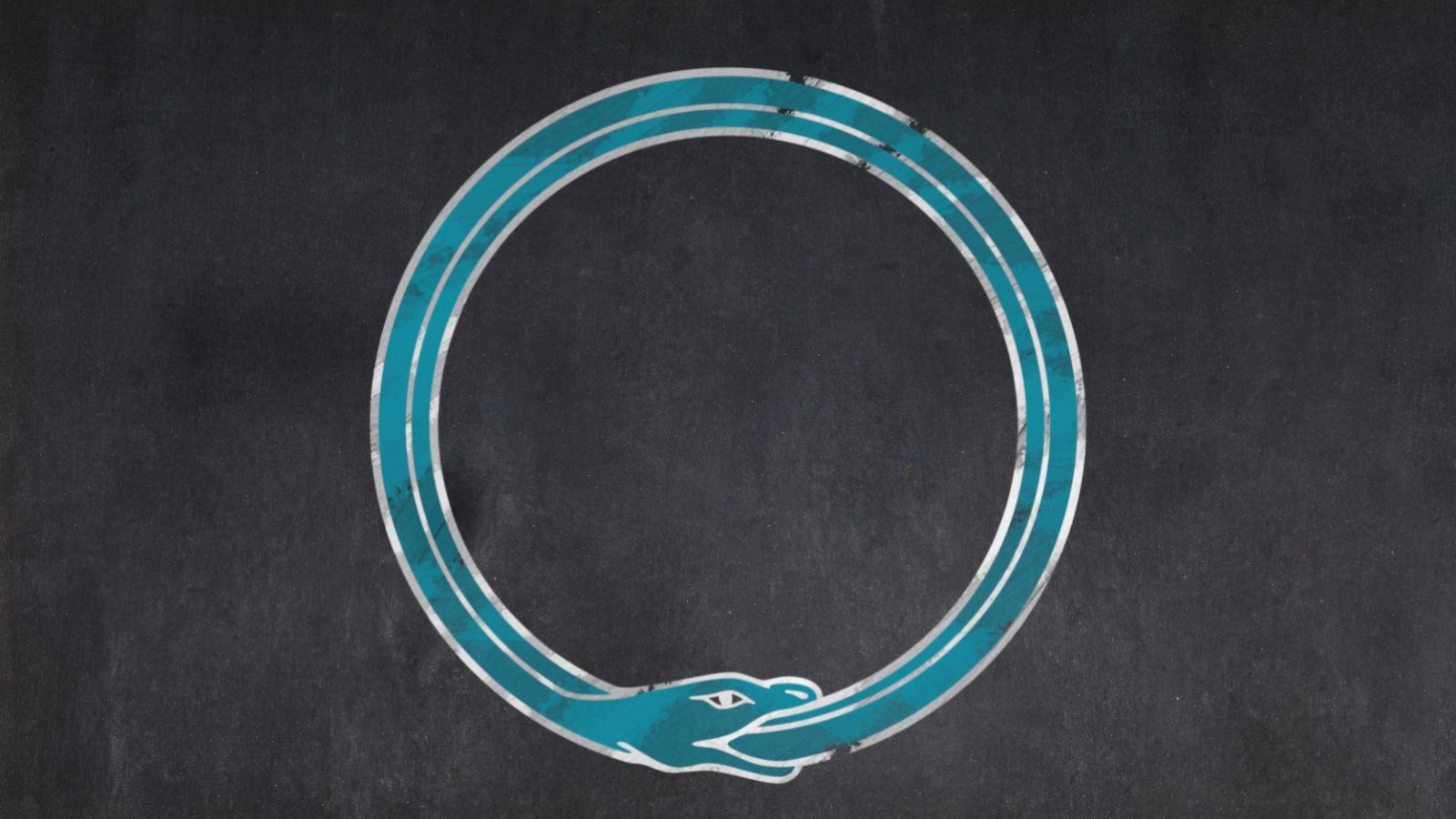What stage of the business cycle is the ouroboros stage?
We ask because prediction markets have just hit the ouroboros stage, as Polymarket — still not quite legal yet here in the colonies — put up a market late Friday, basically asking the world if it, and prediction markets at large, will be mostly put out of business this calendar year.
The market is titled, “Will sports prediction markets be banned in any U.S. state in 2025?”
The market opened at 50 cents on “yes,” was quickly knocked down to 8 cents, and, as of publication time Monday morning, seems to have settled at 38 cents.
To be fair, it’s a lightly traded market, with the biggest holder being “lissartter” with 190 “yes” shares, and someone with an obscenely long string of meaningless numbers and letters leading the “no” charge with 174 shares.
It’s almost comical when the question gets expanded, as it reads — verbatim — as follows:
“In the past week, several developments have emerged regarding the potential for sports prediction markets to be banned in any U.S. state by the end of 2025. Michigan regulators have warned sportsbooks that their licenses could be at risk if they engage in prediction markets, joining states like Ohio and Arizona in increasing oversight. Additionally, Kalshi has taken legal action against Ohio, challenging what it claims is unlawful interference with its platform, aiming to resume operations soon. These state-level crackdowns and legal battles suggest growing resistance, potentially impacting the “Yes” probability, though “No” currently leads at 62.5%.”
Always read the fine print
Every market has particular rules, and it would seem that based on the fine print, “no” is a near-100% lock.
If order for the market to resolve to “yes,” a state would have to “legally” prohibit or block users in at least one U.S. state. This would include the Commodity Futures Trading Commission (CFTC) banning sports prediction markets, a court order that “has the effect of suspending or terminating user access to sports event contracts in one or more states,” or state enforcement held up by courts.
Furthermore, in order for “yes” to win, the ban has to actually take effect. Announcements, proposals, litigation, pauses, or virtually anything else would result in the market settling at “no.”
And while a handful of states are actively seeking to but the kibosh on Kalshi and others when it comes to sports event contracts, it would seem unlikely that it’s going to happen in less than three months.









